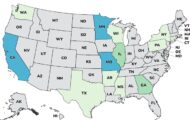The FDA has denied a request from the Brazilian Citrus Exporters Association (Citrus BR), who asked the government agency to measure carbendazim amounts in concentrated orange juice on an “as consumed” (diluted) basis. The Juice Products Association (JPA), the representative of the United States fruit and juice products industry, expressed its disappointment at the FDA Decision.
On a statement on its web site, the JPA said,
“Juice processors maintain, however, that no one drinks orange juice concentrate and therefore the levels of carbendazim in orange juice should be evaluated on an “as consumed” basis, which is a more logical and practical way to assure safety for the consumer. FDA does have enforcement discretion to consider the fact that consumers don’t drink orange juice concentrate.
The Juice Products Association has called upon FDA to use this enforcement discretion to calculate any levels of carbendazim found in imported orange juice tested on an “as consumed basis” – not on a concentrated basis − which would raise the allowable limit for carbendazim in imported orange juice concentrate to almost 60 ppb, much higher than levels measured in any samples to date.”
But there’s a problem with those statements. There are numerous recipes on the internet and in cookbooks that use concentrated orange juice as-is, as an ingredient in marinades, ice cream desserts, cakes, cooked cereals, side dishes, and frostings. The consumer does use concentrated orange juice without dilution.
Citrus BR said that the FDA’s standards could put them in violation of international trade agreements. The FDA did admit that the levels of carbendazim found in the orange juice concentrate do not pose a health risk to consumers. The Environmental Protection Agency consulted with the FDA on this matter, stating that carbendazim levels of up to 80 ppb are not a threat to human health.




